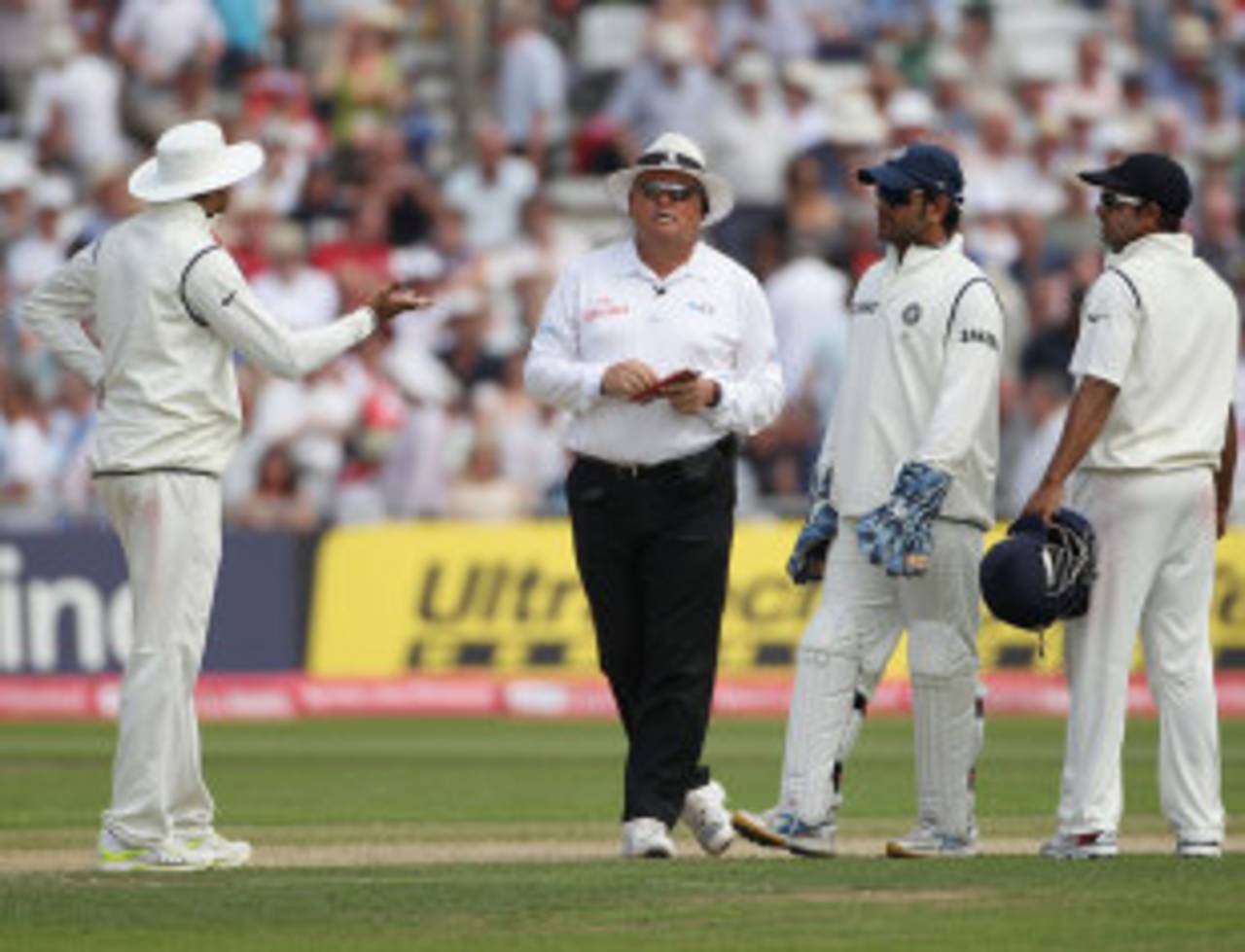One of the reasons Aristotle is among my favourite philosophers - besides his suggestion that the lowly are not to be disdained in our intellectual study of the world around us - is that he beautifully explicates the notion of the golden mean. This thought is most perspicuously developed in the
Nichomachean Ethics, Book 2. A read of that chapter might have been useful at Trent Bridge during the Ian Bell
drama for everyone - umpires, cricketers, fans, commentators - especially when it comes to Aristotle's notion of generosity.
In an academic paper on the morality of cricketing practices, my good friend David Coady and I, while discussing the ethics of Mankading, and in particular Courtney Walsh's
decision not to Mankad Saleem Jaffar during the 1987 World Cup, wrote:
In our opinion, Walsh was a sucker; Jaffar was exploiting his generosity; Walsh and his team paid for it.
On the second day at Trent Bridge, Ian Bell was out according to the rules of the game. He forgot them and he paid for it. MS Dhoni agreed to rescind his appeal, thanks to a personal appeal from the England captain and coach. I think Dhoni was a sucker. He was within his rights to appeal.
And the umpires on the ground, presumably well-versed with the laws of cricket, had given Bell out. Years ago, in his
debut Test against England during the 1981-82 series, Kris Srikkanth went walkabout without attempting a run, forgetting the ball wasn't dead, and was run out by John Emburey; everyone chuckled at the silliness of the confused young batsman, who had been exposed to the 'hard knocks' world of Test cricket.
Had Dhoni withdrawn his appeal because the umpires had made a bad decision, for instance, if he knew his fielder had taken a bump-ball catch, then Dhoni would have been a true sportsman. In yesterday's circumstances, Dhoni was gypped, and royally, by a captain and coach, who, just a couple of days ago,
forbade Monty Panesar from practising with Sachin Tendulkar, something that everyone would have considered within the spirit of the game.
Invoking the spirit of the game for this decision and this decision alone is ludicrous and hopelessly inconsistent. In fact, I'd go so far as to say it's incoherent. Bowlers sledge, batsmen don't walk, batsmen stand their ground when caught and don't take the fielder's word for it, the umpire's decision is not final (everyone in the fair land of spirit of the game wants the DRS apparently), but a captain is expected to withdraw his appeal when the batsman is out within the rules of the game?
Cricket, its players, and its fans and media need to resolve their schizophrenic attitude toward this.
Generosity also demands reciprocity. Will Andrew Strauss and Andy Flower ask James Anderson to not sledge the India batsmen now? Will the England batsmen walk? Will the England batsmen not stand their ground any more when India fielders claim catches? Will the crowd at Trent Bridge boo Kevin Pietersen if he sledges Yuvraj Singh from gully? I don't know.
